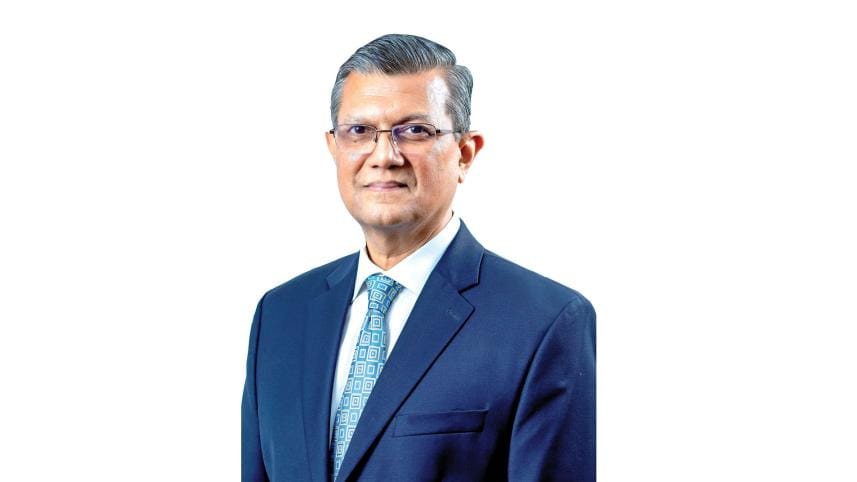“Midland Bank consistently invests in advanced tech”

TDS: What is the current status of digitalization within your organization?
Md. Ahsan-uz Zaman (MAZ): Midland Bank (MDB) has utilized digital options to assist customers in areas where we do not have a branch presence, enabling them to conduct their banking without the need to visit any of our locations.
The number of accounts being opened digitally is growing, and as of now, an average of 10.25% of our new customer onboarding is done using Bangladesh Bank's e-KYC process with minimal paperwork. Our intention is to increase such onboarding to 90% by the end of next year.
All customers can register for our free internet banking application called 'Midland Online,' which provides secure banking access using two-factor authentication – it is convenient to use and gaining popularity among our customers. Currently, 16.23% of our registered Midland Online users use the internet application to make online transfers, top up mobiles, pay credit card bills, move funds to their prepaid cards, make mobile financial services transfers to bKash, Rocket, Nagad, Upay, and pay utility bills.
TDS: What challenges do you see in implementing digital transformation within the financial sector?
MAZ: Introducing digital transformation in Bangladesh, as in many other countries, comes with its own set of challenges.
Some common challenges include:
Digital Literacy: Many people in Bangladesh may not be digitally literate or have access to the necessary technology. Addressing this issue requires initiatives to promote digital literacy and expand affordable internet access.
Infrastructure: Limited technology infrastructure in rural areas can hinder the adoption of digital services. Investing in expanding network coverage and improving the quality of internet connectivity is crucial.
To address these challenges, Midland Bank has adopted the following measures:
Digital Literacy Programs: In-person literacy initiatives and dissemination of information to educate customers and the public about digital banking and financial services.
Cybersecurity Measures: Continuously investing in robust cybersecurity to protect customer data.
TDS: How does your organization guarantee security, encompassing cybersecurity, prevention of forgery, and the safety of data?
MAZ: Midland Bank employs state-of-the-art cybersecurity technologies and practices to protect our digital infrastructure, including encryption, firewalls, intrusion detection systems, and regular security audits.
Our employees undergo continuous training and awareness programs designed to enhance their understanding of cybersecurity risks and equip them with the skills to effectively mitigate these risks. We adhere to rigorous data security protocols aimed at safeguarding customer information. This involves implementing measures such as data encryption, access controls, and conducting regular assessments to ensure the effectiveness of our data security practices.
We also use advanced techniques and technologies to prevent forgery and fraud. This includes the use of secure documents, advanced signature verification processes, and fraud detection algorithms. We continuously monitor all transactions for any suspicious activity.
TDS: How does digitalization contribute to addressing sustainability and the inclusion of unbanked individuals in the banking sector?
MAZ: Digitization reduces the need for paper-based transactions and documentation, which contributes to lower paper consumption and, in turn, reduces deforestation. Customers can access services without physically visiting a bank branch, reducing the need for travel and associated carbon emissions.
Digital loan application and processing systems streamline and expedite the loan approval process, enabling borrowers to access funds more quickly. Digital platforms allow banks to collect and analyze vast amounts of data, which can improve credit risk assessment and provide loans to a broader range of borrowers.
TDS: What future plans does your organization have to enhance digitalization?
MAZ: To further enhance digitalization, Midland Bank is undertaking the following steps and has the following future plans:
Advanced Technology Integration: Continuously invest in advanced technologies such as artificial intelligence, machine learning, and blockchain to improve customer experience, streamline operations, and enhance security.
Expanded Digital Product Portfolio: Develop and launch innovative digital products and services that cater to evolving customer needs, including personal finance management tools, investment options, and more.



 For all latest news, follow The Daily Star's Google News channel.
For all latest news, follow The Daily Star's Google News channel.
Comments